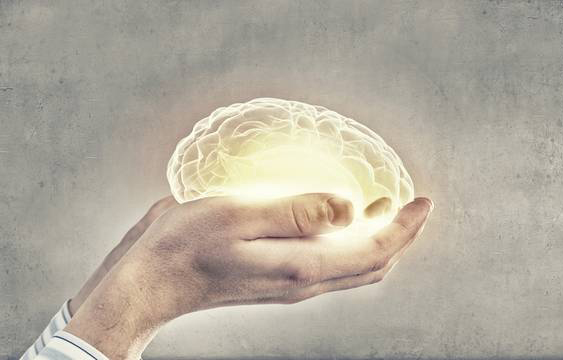Dec. 30, 2022
With the increase of social pressure, examination groups and the aging society, more and more people focus on brain nutrition and quality of life. There is a strong demand for products that can improve cognitive health or promote brain development. The right pro-intellectual supplements can make a big impact, whether it is to meet the needs of the elderly for brain decline, or to boost the brains of teenagers and meet the high consumption of the brain by the examiners. Although the economic situation has been generally sluggish in recent years, the market share of these products has continued to grow.

Here today, Lifewe will take you through a complete list of brain-boosting ingredients, but with the caveat that for the safety reasons, it is best to use prescription brain boosting drugs and dietary supplements containing natural, herbal and plant ingredients which contribute to cognitive health in the brain. There are many kinds of brain tonic and brain-boosting ingredients, but the complete list of market-tested and professionally approved brain-boosting ingredients is as follows:
1. Citicoline
3. PQQ
4. Omega-3
5. Alpha GPC
6. Spearmint Extract
The main ingredients in cognitive health products improving the brain currently include Citicoline, Phosphatidylserine, Omega-3, Alpha-GPC, Spearmint Extract, ginkgo and ginseng. Phosphatidylserine is the only ingredient approved by the FDA in large cognitive health product ingredients. The market share of this ingredient has grown by double digits as the data supporting this grant has increased. In the last 10 years, DHA and EPA have received positive evaluation from the European EFSA because of their protective effects on brain and heart health and vision. Citicoline has been popularized as a pharmaceutical ingredient to prevent neuronal degeneration and improve memory. As the newest technological ingredient in recent years, Spearmint Extract has become the dark horse of the market and is widely concerned.
Let's start by analyzing the first five substances in the list of ingredients.
Citicoline is a relatively inexpensive generic drug which is a brain metabolism activator that can promote brain cell respiration, improve brain function, enhance the function of the ascending reticular activating system, promotes awakening, and reduces cerebrovascular resistance.
Phosphatidylserine(PS) is involved in cell-to-cell communication, the release of neurotransmitter vesicles, and signal transduction in the brain. It plays a central role in sending messages and supporting various neural activities throughout the body.
Pyrroloquinoline quinone (PQQ), called the "fourteenth vitamin" by the world medical community, has a powerful antioxidant capacity. It is not only involved in the redox reaction in the body, but also plays an important role in neuroprotection, protecting the brain from ischemic damage. In the elderly, PQQ has been proved to increase cerebral blood flow to the prefrontal lobe, improving attention and working memory.
Omega-3 is a healthy nutrient. Because the body cannot produce Omega-3 itself, it needs to be obtained from food or supplements, such as algae oil, fish oil, and krill oil. Omega-3 consists of EPA Omega-3, DHA Omega-3 and other Omega 3. Among them, EPA can improve the depression and anxiety and DHA can protect brain function and improve cognitive ability.
Alpha GPC, a water-soluble phospholipid metabolite naturally occurring in animals and the source of acetylcholine synthesis, can effectively enhance human memory and cognitive ability.
In recent years, Spearmint Extract has become a dark horse in the cognitive market, thanks to its rich content of more than 50 polyphenols that bring cognitive improvements to the brain. RA is one of the main components found in spearmint, and plays an important role because of its antioxidant activity (see Ref. 1 for details)) . It is a naturally occurring phenolic compound, an ester of caffeic acid with 3, 4-dihydroxyphenyl lactic acid. RA exhibits several biological activities such as anti-inflammatory, anti-mutagenic, anti-bacterial, anti-depressant, HIV-1 inhibitory, antioxidant and anti-virus properties. These properties make rosmarinic acid an attractive ingredient for use in the pharmaceutical and cosmetic industries. It has been used topically as a non-steroidal anti-inflammatory agent in Europe (see Ref. 2 for details). Due to its widespread use as an aromatic and preservative in the food industry, RA is considered safe for daily ingestion (see Ref. 3 for details). Evidence for the non-specific protective properties of RA has been found in the brain. Improved antioxidant activity of the brain was confirmed after administration of RA to aged mice, which resulted in an increase in the activity of superoxide dismutase (SOD) and catalase (CAT) in the brain, and a decrease in malondialdehyde (MDA) (see Ref. 4 for details).
At present, citicoline, PQQ or phosphatidylserine are the main brain tonic products in the market. In addition, there are many 3A(DHA, EPA, DPA) brain nutritional products in the market. Typical in the domestic market are "unforgettable", as well as some cod liver oil and algal oil (DHA) brands. And some foreign brain nutrition brands are also composed of Dha, EPA or-Alpha GPC, PS, PQQ as a combination of one or two ingredients. As long as consumer recognize the above ingredients when purchasing, they can get help accordingly.
References
(Literature1. Fletcher et al.Heat stress reduces the accumulation of rosmarinic acid and the total antioxidant capacity in spearmint(Mentha spicata L).Journal of the Science of Food and Agriculture 85:2429-2436, 2005).
(Literature1. Ritschel et al.Percutaneous absorption of rosmarinic acid in the rat.Methods and Findings in Experimental and Clinical Pharmacology 11:345-352, 1989).
(Literature1. Alkam et al.A natural scavenger of peroxynitrites, rosmarinic acid, protects against impairment of memory induced by Aβ25-35. Behavioural Brain Research 180:139-145, 2007).
(Literature1. Shou et al.Rosmarinic acid attenuates D-galactose induced behavior impairment in mice and its mechanism.2010, p.1723-1726).
SAMe for Anxiety: Is It Effective?
Dec. 27, 2024
What is Citicoline Sodium Used For?
Dec. 13, 2024
How Long Does It Take L-theanine to Work?
Nov. 28, 2024
Quick Links
Tel: +1 213 554 2947
E-mail: info@witspower.com
WhatsApp: +86 186 2946 5189
Skype: howey8825
Add: 895 S Rockefeller Ave, Suite 101, Ontario, CA91761



